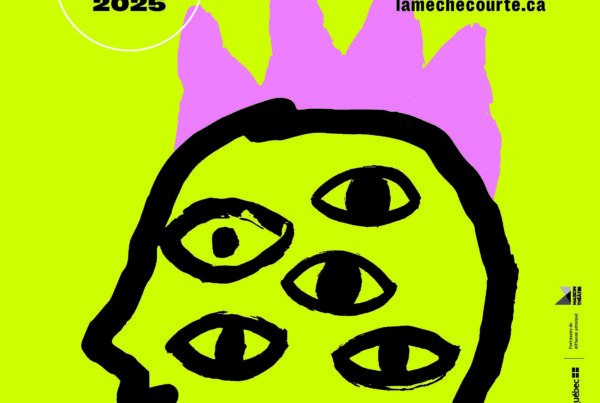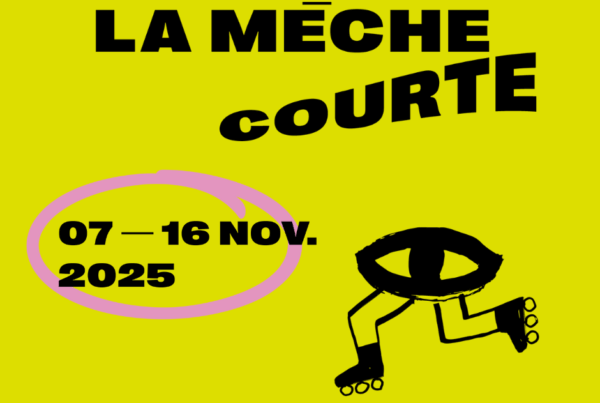Over the past few years Europe has become increasingly polarized, witnessing the spread of extreme right-wing and nationalist parties in an increasing number of countries. Anti-democratic currents are being stirred up, giving rise to a political climate that encourages violence, open racism and fear.
We wish to investigate the effects, if any, this new situation is having on the performing arts for children and youth. Has performing arts for young people embraced these issues? Are they mirrored in our repertoires? Do our performances raise questions or encourage resistance? What do we see outside of Sweden?
Encouraging collaboration between companies and institutions in Sweden and in other European countries we hope to exchange knowledge, competence and experience, strengthen the artistic work and encourage performing arts for young people to counteract racism. Through public lectures, discussions, workshops, performances and festivals we wish to promote an exchange of ideas and inspiration around issues of racism and the role of the performing arts.
We are looking for new ways for theatre, dance, and circus for young audiences to connect with an important political and social issue. We wish to develop cooperation between Swedish production units and those of other European countries to lift the question of racism and to discuss directly and openly the political and artistic repercussions of the current situation with producers and artists involved with work for young people.
On the whole, the project will work for artistic development in the field of performing arts for children and youth, inspire a new socially engaged artistry, and increase competence and knowledge among practitioners in Sweden and Europe in regards to an important issue: racism and how the structures of racism can be identified and described in social discourse.
The project targets two groups:
- – Adult professionals: performing arts practitioners who participate in seminars, workshops and performances.
- – The general public: children, youth and adults as audiences in performances and public seminars and lectures.
The project is unique in its attempt to compare and to encourage collaboration between Swedish European performing arts institutions concerning an issue of growing importance in many countries. Through the activities proposed here, seminars, workshops, meetings and festivals, we can make an inventory of methodology and practice and gain insight into the level of engagement in Sweden and other countries, and then present the result for colleagues and the general public.
Project runs from October 2015 to October 2016.
If you want to participate
– please, let us know!
Contact and information: Niclas Malmcrona – nm@assitej.se
This project has received support from the Cultural Foundation of the Swedish Postcode Lottery.
Over the past few years Europe has become increasingly polarized, witnessing the spread of extreme right-wing and nationalist parties in an increasing number of countries. Anti-democratic currents are being stirred up, giving rise to a political climate that encourages violence, open racism and fear.
We wish to investigate the effects, if any, this new situation is having on the performing arts for children and youth. Has performing arts for young people embraced these issues? Are they mirrored in our repertoires? Do our performances raise questions or encourage resistance? What do we see outside of Sweden?
Encouraging collaboration between companies and institutions in Sweden and in other European countries we hope to exchange knowledge, if any, this new situation is having on the performing arts for children and youth. Has performing arts for young people embraced these issues? Are they mirrored in our repertoires? Do our performances raise questions or encourage resistance? What do we see outside of Sweden?
Encouraging collaboration between companies and institutions in Sweden and in other European countries we hope to exchange knowledge, competence and experience, strengthen the artistic work and encourage performing arts for young people to counteract racism. Through public lectures, discussions, workshops, performances and festivals we wish to promote an exchange of ideas and inspiration around issues of racism and the role of the performing arts.
We are looking for new ways for theatre, dance, and circus for young audiences to connect with an important political and social issue. We wish to develop cooperation between Swedish production units and those of other European countries to lift the question of racism and to discuss directly and openly the political and artistic repercussions of the current situation with producers and artists involved with work for young people.
On the whole, the project will work for artistic development in the field of performing arts for children and youth, inspire a new socially engaged artistry, and increase competence and knowledge among practitioners in Sweden and Europe in regards to an important issue: racism and how the structures of racism can be identified and described in social discourse.
The project targets two groups:
- – Adult professionals: performing arts practitioners who participate in seminars, workshops and performances.
- – The general public: children, youth and adults as audiences in performances and public seminars and lectures.
The project is unique in its attempt to compare and to encourage collaboration between Swedish European performing arts institutions concerning an issue of growing importance in many countries. Through the activities proposed here, seminars, workshops, meetings and festivals, we can make an inventory of methodology and practice and gain insight into the level of engagement in Sweden and other countries, and then present the result for colleagues and the general public.
Project runs from October 2015 to October 2016.
If you want to participate
– please, let us know!
Contact and information: Niclas Malmcrona – nm@assitej.se
This project has received support from the Cultural Foundation of the Swedish Postcode Lottery.
witnessing the spread of extreme right-wing and nationalist parties in an increasing number of countries. Anti-democratic currents are being stirred up, giving rise to a political climate that encourages violence, open racism and fear.
We wish to investigate the effects, if any, this new situation is having on the performing arts for children and youth. Has performing arts for young people embraced these issues? Are they mirrored in our repertoires? Do our performances raise questions or encourage resistance? What do we see outside of Sweden?
Encouraging collaboration between companies and institutions in Sweden and in other European countries we hope to exchange knowledge, competence and experience, strengthen the artistic work and encourage performing arts for young people to counteract racism. Through public lectures, discussions, workshops, performances and festivals we wish to promote an exchange of ideas and inspiration around issues of racism and the role of the performing arts.
We are looking for new ways for theatre, dance, and circus for young audiences to connect with an important political and social issue. We wish to develop cooperation between Swedish production units and those of other European countries to lift the question of racism and to discuss directly and openly the political and artistic repercussions of the current situation with producers and artists involved with work for young people.
On the whole, the project will work for artistic development in the field of performing arts for children and youth, inspire a new socially engaged artistry, and increase competence and knowledge among practitioners in Sweden and Europe in regards to an important issue: racism and how the structures of racism can be identified and described in social discourse.
The project targets two groups:
- – Adult professionals: performing arts practitioners who participate in seminars, workshops and performances.
- – The general public: children, youth and adults as audiences in performances and public seminars and lectures.
The project is unique in its attempt to compare and to encourage collaboration between Swedish European performing arts institutions concerning an issue of growing importance in many countries. Through the activities proposed here, seminars, workshops, meetings and festivals, we can make an inventory of methodology and practice and gain insight into the level of engagement in Sweden and other countries, and then present the result for colleagues and the general public.
Project runs from October 2015 to October 2016.
If you want to participate
– please, let us know!
Contact and information: Niclas Malmcrona – nm@assitej.se
This project has received support from the Cultural Foundation of the Swedish Postcode Lottery.
Theatre and Statelessness in Europe
Editors: Dr Azadeh Sharifi and Prof. S. E. Wilmer
With the number of refugees from the Middle East and Africa rising rapidly and demonstrations for and against refugees and immigrants taking place in many cities, migration has become a major issue in Europe. Despite the large number of deaths in sea crossings, the member states of the European Union have thus far failed to agree to share the responsibility for housing new immigrants and asylum seekers. While a few EU states have been welcoming them, most have been constructing new barriers to keep them out, such as Spain’s heightened security border fence in Melilla, Bulgaria’s 150 kilometre fence with Turkey, Hungary’s new 175 kilometre fence with Serbia, and Britain’s enhanced Channel Tunnel defenses.
In reaction to the crisis, Critical Stages is hosting a special section on Theatre and Statelessness. We are interested in publishing articles (of about 4500 words) about how theatre makers (such as Ariane Mnouchkine, Christoph Schlingensief, Elfriede Jelinek, Donal O’Kelly, David Edgar, etc.) and/or theatre institutions (such as the Ruhr Triennale, the Ballhaus Naunynstrasse, the Maxim Gorki Theatre and the Theatertreffen in Berlin) have responded to this issue.
Application procedure:
Abstracts of approximately 250 words (and a brief biog) in Microsoft Word should be submitted to Dr. Azadeh Sharifi (azadeh_sharifi@web.de) and Prof. S E Wilmer (swilmer@tcd.ie)
Schedule:
Deadline for abstracts: 15 December 2015
Deadline for confirmation: 15 January 2016
Deadline for first drafts: 15 May 2016
Feedback: 15 June 2016
Final drafts: 15 September 2016
Publication: December 2016
SHALL WE DANCE?
Editor: Margareta Soerenson
The “Special Topics” of Number 13 of Critical Stages (due June 2016) will focus on dance, a field of performing arts that has deeply influenced dramatic theatre as well during the last decades of the 20th century. What is interesting and worthwhile examining is that although dance and performance tend to take more space in contemporary theatre festivals, critics continue to separate theatre criticism from dance criticism.
Critical Stages, trying to widen its scope of inquiry, invites papers which reflect, in a fresh and inviting way, on contemporary dance trends and dance criticism. Also papers with more theoretical concerns like the body as site for negotiating artistic and sociocultural issues or the body as dispositive of gender issues, are most welcome.
Those interested in having their paper considered for publication please contact the editor of the issue Margareta Sorenson (soerenson@swipnet.se)
NOTE: Submissions should not be published earlier or be under consideration for publication while being evaluated for this journal. They must also adhere to the style and ethics of the journal.
DETAILS
Submission deadline: Mid-April 2016
Issue publication: 13. 1 (2016)—June 2016
Length: 4000-4.500 words
Publication frequency: Twice a year (June and December)
Language: English or French
Read article in French here





